K2 Miscellaneous Books
My rating scale:
 Excellent ;
Excellent ;
 Very Good ;
Very Good ;
 Good ;
Good ;
 Fair ;
Fair ;
 Poor.
Poor.
1. Climbing the World's 14 Highest Mountains: The History Of The 8000-Meter Peaks
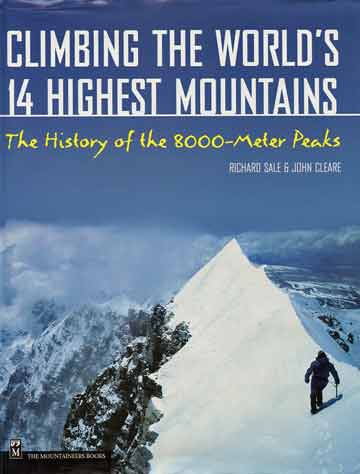
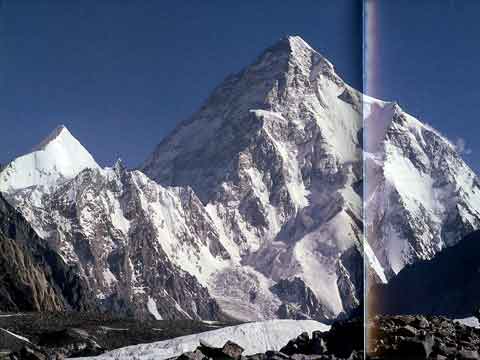
by Richard Sale, John Cleare (Photographer). Published by The Mountaineers in 2000.
Highly recommended! The book details the exploration, first ascent, and other major ascents of all 14 8000m peaks, including spectacular photos and climbing routes.
There are 18 pages on K2
2. 8000 Metri Di Vita, 8000 Metres To Live For
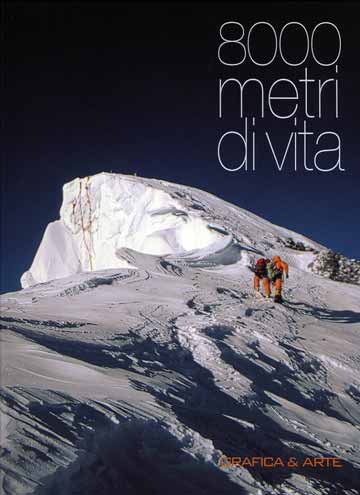
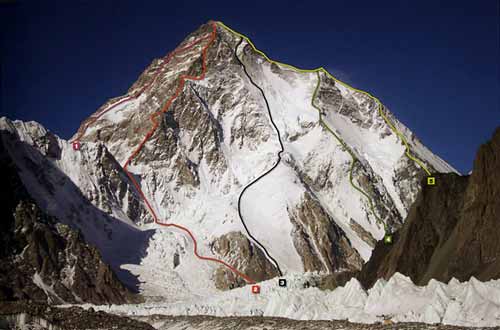
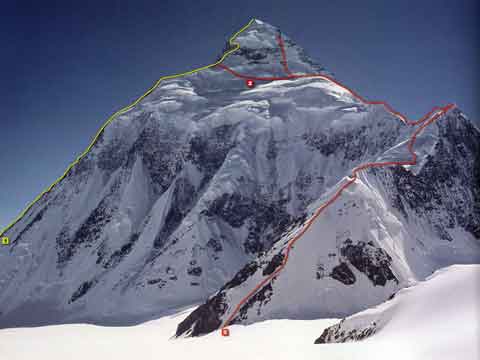
by Simone Moro. Published 2008. In Italian and English. This coffee-table size book features excellent photos from all 14 8000m peaks. Each 8000m peak has a brief history, a photo of each face showing the climbing routes, and lots of excellent photos.
There are 12 pages on K2. Simone Moro's attempt on K2 in 2003 ended at the Bottleneck due to bad weather.
The photos and route diagrams are excellent.
3. All Fourteen 8,000ers
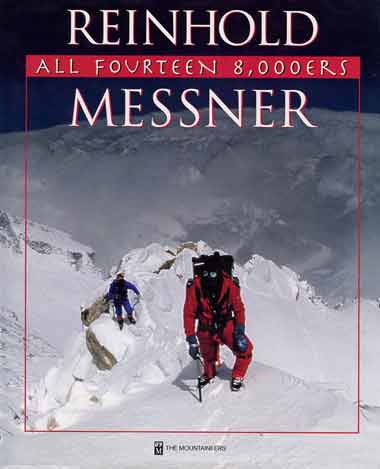
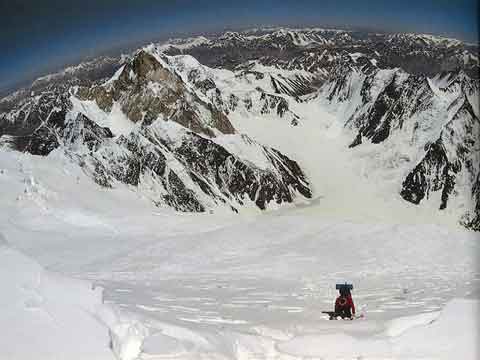
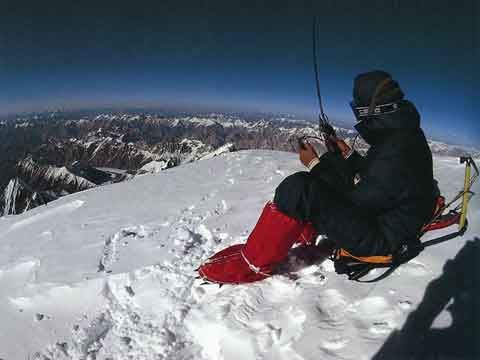
by Reinhold Messner. One of Michael Chessler's Top 100 Mountaineering Books. This book details Messner's ascents of all 14 8000m peaks documented with his photos. He also includes route diagrams and some basic history of the first few ascents. Messner was the first climber to summit all 14 mountains over 8000 metres in height, beginning with Nanga Parbat on June 27, 1970 and finishing with Lhotse on October 16, 1986.
After abandoning his so-called Magic Line on the south spur, on July 12, 1979 Reinhold Messner and Michl Dacher completed the fourth ascent of K2 by the Abruzzi Ridge. K2 was Messner's 5th 8000er.
The photos are very good, the story straightforward.
4. Himalaya Alpine Style: The Most Challenging Routes on the Highest Peaks
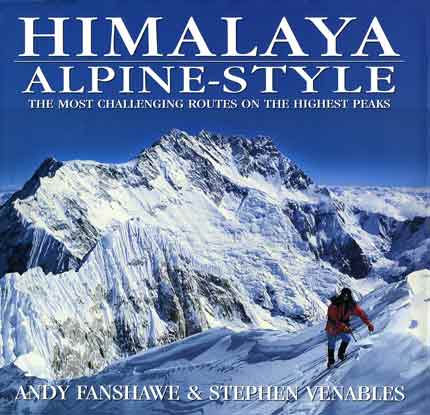
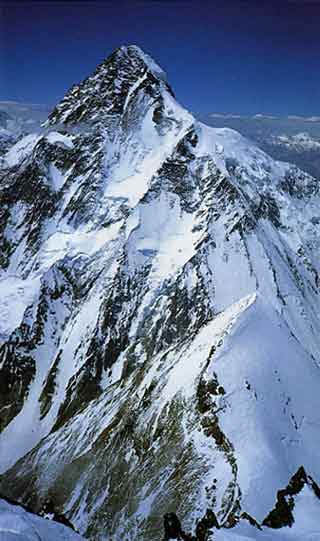
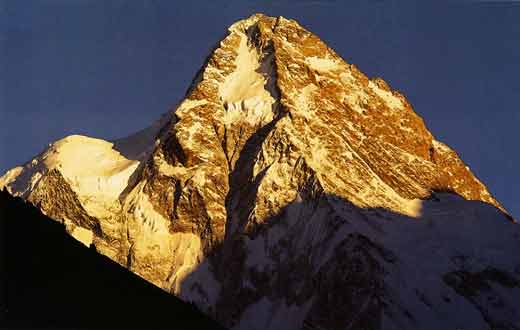
by Andy Fanshawe, Stephen Venables. Published 1996. This book briefly details 40 of the world's finest climbs on mountains in Pakistan (including Broad Peak, K2 and Nanga Parbat), India, Nepal and Tibet (including Annapurna, Shishapangma, Cho Oyu, Everest, Makalu and Kangchenjunga). Each climb is illustrated with many great photos, climbing routes, and summary statistics and information. Each area has an excellent overview map.
There are four pages on K2 Southeast Abruzzi Spur and four pages on K2 North Ridge.
5. Himalayan Quest: Ed Viesturs on the 8,000-Meter Giants
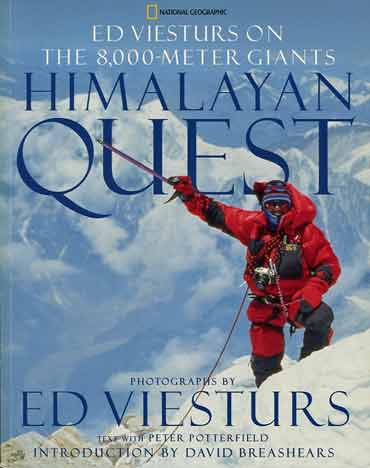
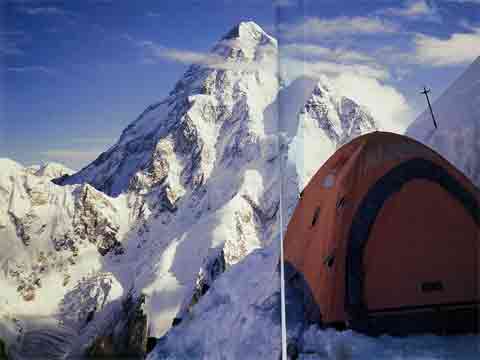
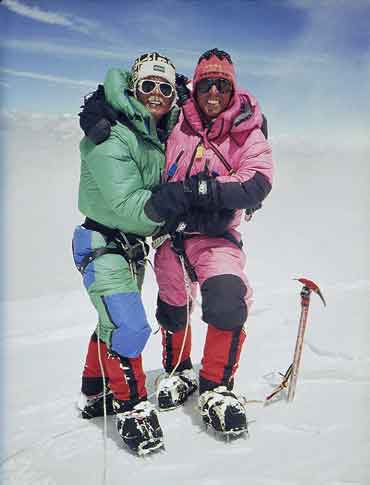
photographs by Ed Viesturs, text with Peter Potterfield. Released in early 2003, this book presents photographs with some basic text descriptions of Viesturs' ascents of 11 of the 14 8000ers. After this book was published he reached the summit of Nanga Parbat in June 2003, Broad Peak in July 2003, and on May 12, 2005 he reached the summit of Annapurna, becoming the first American to reach the summit of all 14 8000ers, all without oxygen.
Viesturs devotes 59 pages to his attempts on Everest in 1987, 1988 East Kangshung Face, 1993 and 1995, and his successful summits in 1990, 1991, 1994, 1996, and 1997. Ed was part of the 1996 Everest IMAX movie, and on his own way to the summit he had to pass the bodies of Scott Fischer and Rob Hall who had died days before. "I had never had a friend die, let alone a climbing partner. So seeing my friends' bodies was very difficult."
Ed's photos are excellent.
6. Chris Bonington Mountaineer- Thirty Years of Climbing on the World's Great Peaks
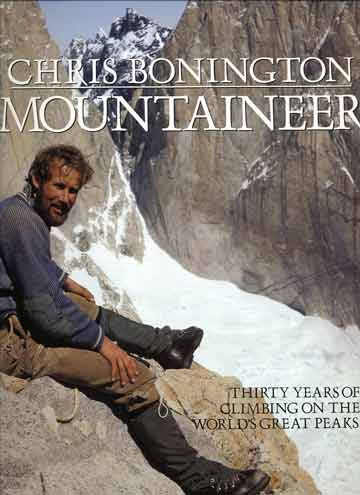
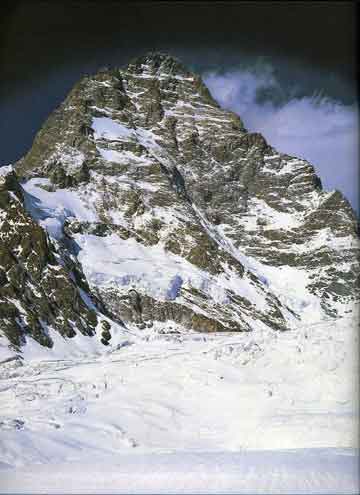
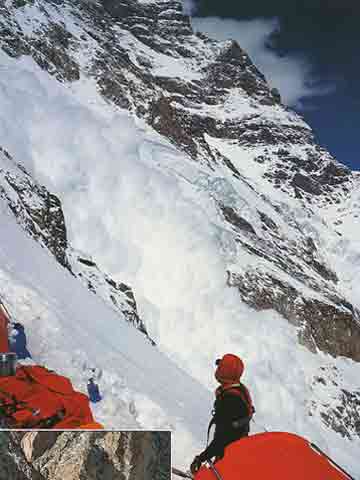
by Chris Bonington. First published 1989. One of Michael Chessler's Best Mountain Photo Books. Famed British mountaineer Chris Bonington tells his autobiography mostly in photos in this coffee-table type book. The book features his early climbs in Great Britain; his alpine climbs in the Alps including Mont Blanc, the Eiger and Grandes Jorasses; his expeditions around the world including Paine in Chile, Baffin Island and the Blue Nile; and his expeditions both large and small to the Himalayas and the Karakorum - Annapurna II, Nuptse, Annapurna I South Face, Everest Southwest Face, Everest Northeast Ridge, the Ogre, K2, and Menlungtse.
Bonington devotes four pages to the K2 West Ridge attempt in 1978. After his success on the Southwest face of Everest in 1975, Bonington led an expedition to attempt the K2 West Ridge in 1978. Nick Estcourt died on June 11, 1978 in an avalanche. "The only trace of the avalanche was the cone of snow at the bottom of the hanging glacier, but that had been there before. It didn’t seem any bigger, yet thousands of tons of snow and ice must have poured down, sweeping Nick [Estcourt] with them."
Bonington's photos are excellent.
7. World Mountaineering: The World's Great Mountains by the World's Great Mountaineers
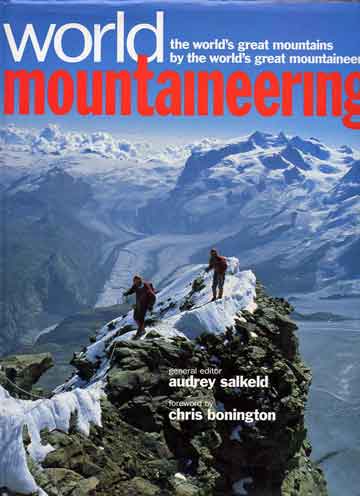
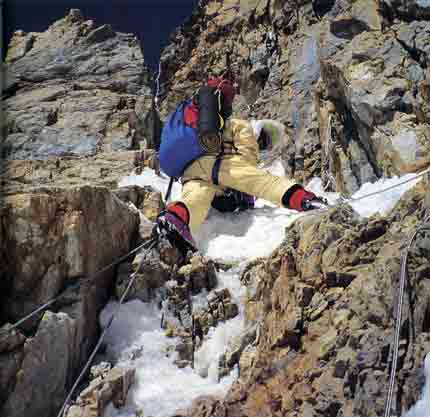
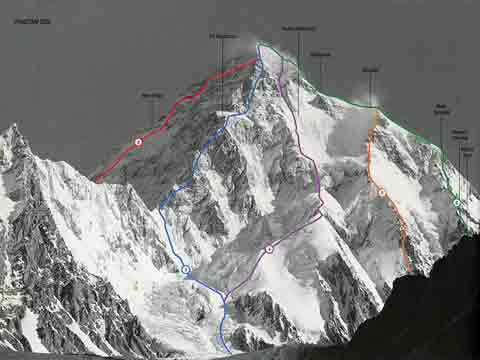
by Audrey Salkeld. Published 1998. The book briefly details 52 of the world's finest climbs from Europe (including Mont Blanc, the Matterhorn and the Eiger), Arctic and North America, South America, Antarctica, Indonesia and Oceania, High Asia and Korea and Japan (including K2, Nanga Parbat, Kangchenjunga, Mount Everest), and Africa. Each climb is documented with photos, excellent aerial-type maps, and a basic climbing history.
8. Los Ochomiles: Karakorum e Himalaya: las catorce cumbres más altas del mundo
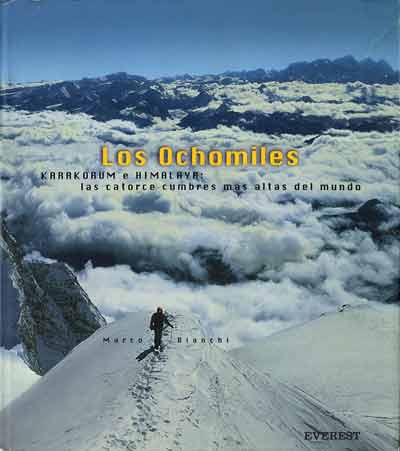
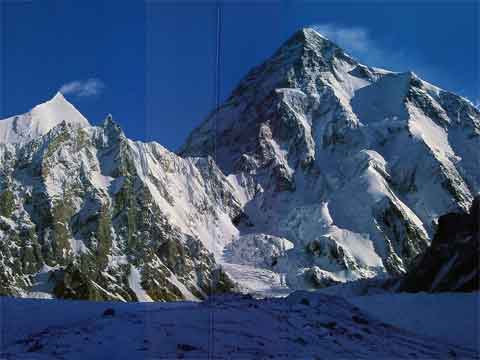
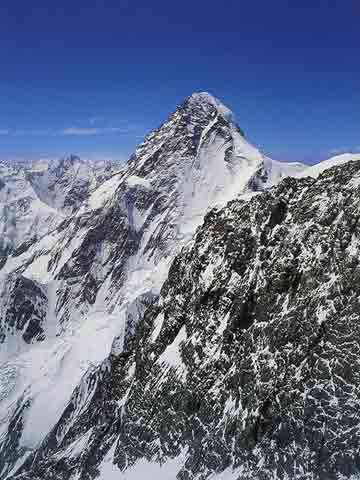
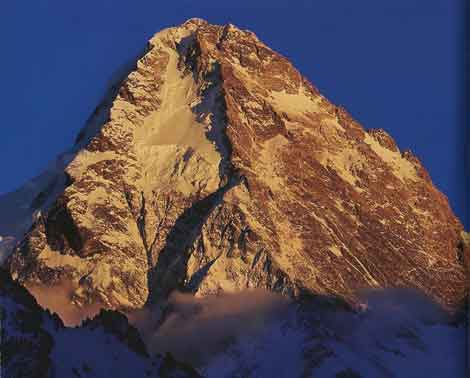
by Marco Bianchi. Published 2003. Although the title claims to be the 14 highest summits in the world, this beautiful, large-format photo book really focuses on the seven mountains the author climbed. The text is in Spanish, but the photos transcend language.
After attempts on Makalu in 1986 and Cho Oyu in 1989, Bianchi summited seven of the 14 8000m peaks: Manaslu Sept. 28 1992 via Northeast Face, Broad Peak July 6 1993 via Normal route, Cho Oyu Sept. 18 1993 via West Ridge, Shishapangma Oct. 6 1993 via Southwest Face, Dhaulagiri Sept. 25 1994 via Northeast Ridge, Everest May 12 1995 via Northeast Ridge, and K2 Aug. 10 1996 via North Ridge.
There are 44 pages of the trip from Islamabad to Skardu, the trek up the Baltoro Glacier to Concordia, Gasherbrum I and II, Broad Peak and K2.
There are 16 pages of the trek to K2 North Face and his climb of the K2 North Ridge with Krzysztof Wielicki and Christian Kuntner.
The photos are excellent.
9. Peaks Of Glory
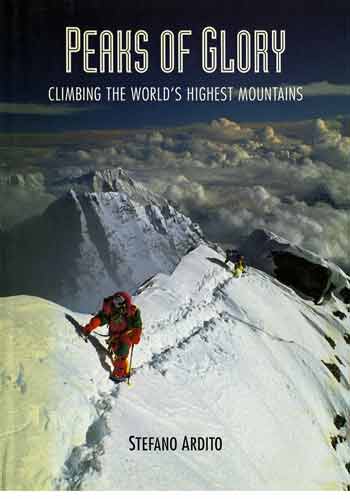
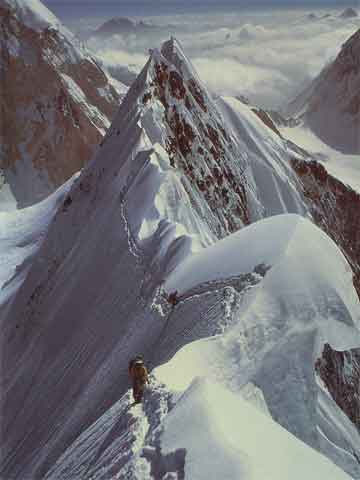
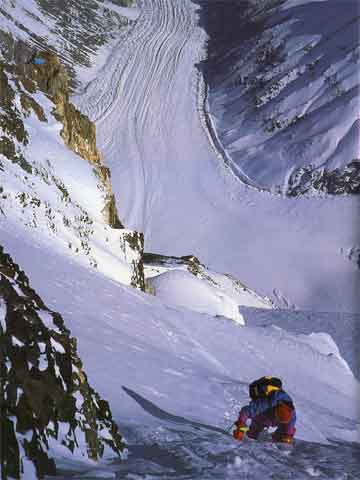
by Stefano Ardito. Published 1993. This is a large coffee-table style book with excellent photos, briefly listing the most challenging mountains on each continent, including Everest, Annapurna, Nanga Parbat, K2 and the Trango Towers in the Himalaya, and K2, Denali and Aconcagua, and Mont Blanc and the Matterhorn.
There are 15 pages on K2.
The photos are very good.
10. Wanda Rutkiewicz - A Caravan Of Dreams

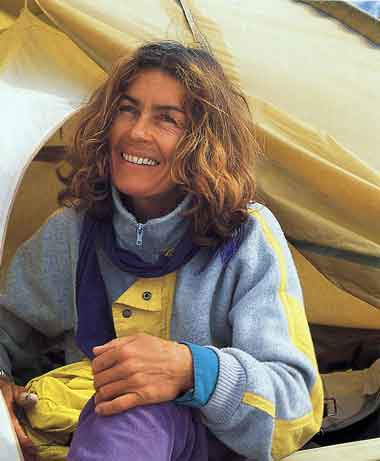
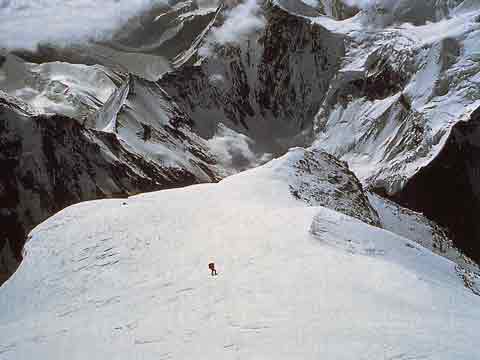
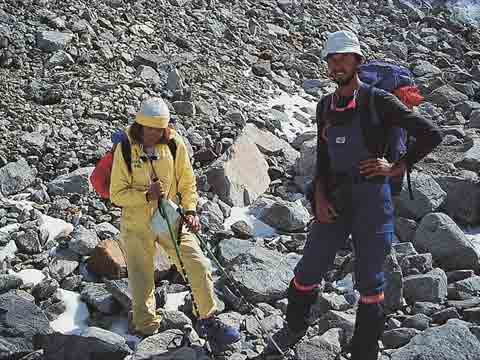
by Gertrude Reinisch. Published in English in 2000. This book traces the career of Polish climber Wanda Rutkiewicz. It includes brief reports of Trollryggen in Norway in 1968, Pik Lenin 1970, the Eiger North Face 1973, the Matterhorn North Face 1978, Aconcagua South Face 1985, and Cerro Torre 1988. The book focuses mainly on her climbs in the Himalaya and Karakoram, including: the first ascent of the then highest unclimbed peak 7952m Gasherbrum III August 11, 1975 (4 pages); Mount Everest summit October 16, 1978 (10 pages); Nanga Parbat attempt 1976 and summit July 15, 1985 (5 pages); K2 expedition leader 1982, attempt 1984, and becoming the first female to summit K2 June 23, 1986 (35 pages); Makalu attempts 1986 and 1990 (10 pages); Shishapangma Main Summit September 18, 1987 (4 pages); Gasherbrum II summit July 12, 1989 (14 pages); Gasherbrum I summit July 16, 1990 (19 pages); Cho Oyu summit September 26, 1991 solo (2 pages); Annapurna winter attempt 1987 and south face summit October 22, 1991 solo (15 pages); Dhaulagiri aborted attempt 1991 (3 pages); Yalung Kang (8505m) winter 1988/89 attempt, and Kangchenjunga attempts in 1991 and 1992 (24 pages); Wanda Rutkiewicz died May 12 or 13, 1992 on Kangchenjunga. There are transcripts of many of her personal letters from expeditions across the world. There are many photos.
Wanda climbed with Lilianne and Maurice Barrard and Michel Parmentier on K2 in 1986. 'After an icy night at 7900m, four in a single tent without sleeping bags ... Wanda and her companions somehow put the Bottleneck and the ice traverse behind them, but then found themselves in chest-high snow, with no choice but to spend a second night in the Death Zone [at 8300m]. The final stretch to the summit lay over a long shoulder which, in their state of exhaustion on that icy cold morning of 23 June 1986, seemed endless.' ... [Wanda] 'Climbing on alone was really exciting, and I was thrilled to be so near the summit, etched like a crown with three points. It was a beautiful day. My dreams of reaching the second-highest peak in the world - so much more beautiful than Everest - was coming true and the weather couldn't have been more perfect for the occasion. When I stood alone on the very top it was 10:15. Around me lay a stupendous ring of slightly lower mountains. Clouds hung in the valleys below, and above was nothing but the infinite expanse of sky. ... I felt no triumph, but I did feel that God was near me. I've always felt close to God at the top of different mountains.' Wanda was the first Pole and the first woman to scale K2, and she stood there alone, savouring the taste of success. Wanda was followed by Lilianne and Maurice and Michel.
They descended to their 8300m bivouac where Maurice suggested they stay the night. [Wanda] 'We made a big mistake. When you climb without oxygen, success depends on your speed and how long you spend in the Death Zone. It was a terrible night.' The next day, Michel descended quickly followed by Wanda with Lilianne and Maurice at the back. Michel fell down the Bottleneck, but landed on a snow drift and dusted himself off and continued down. Wanda reached their tent at 7700m after Michel, but there was no sign of Lilianne and Maurice. [Wanda] 'I asked myself whether there was any serious point in waiting any longer. It was mortally dangerous to stay on at that altitude.' Wanda continued her descent as a storm raged and made it back to their store camp at 7100m at the bottom of the Black Pyramid, where she waited for another two days hoping against hope. She then continued down to ABC where she met a rescue party who had more or less given up hope of seeing her alive again. Michel waited and waited for the Barrards, but he too finally had to descend. A few days later Lilianne Barrard's body was found on the lower glacier. [Wanda] 'I think Maurice and Lilianne must have lost the route in the bad visibility and either fallen or been taken by surprise by an avalanche.'
The book is written in a straightforward manner, factual and to the point. The chapter on K2 is very good describing her dangerous descent. We do get some insights into Wanda as a person through her relationship with the author and her letters. The photos are very good.
11. Hall and Ball: Kiwi Mountaineers from Mount Cook to Everest
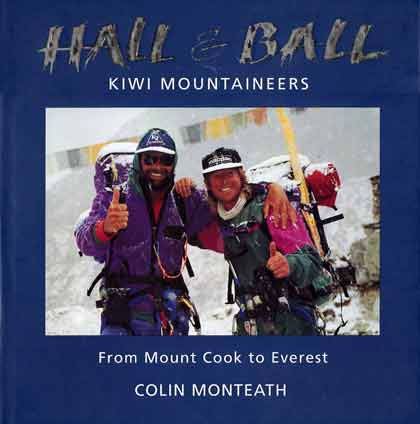
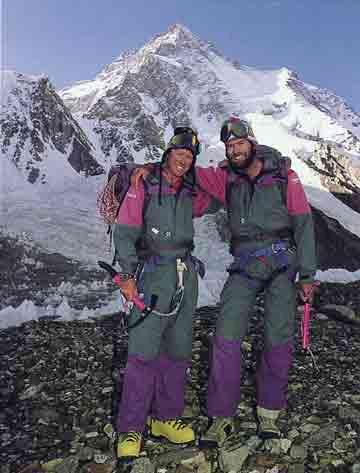
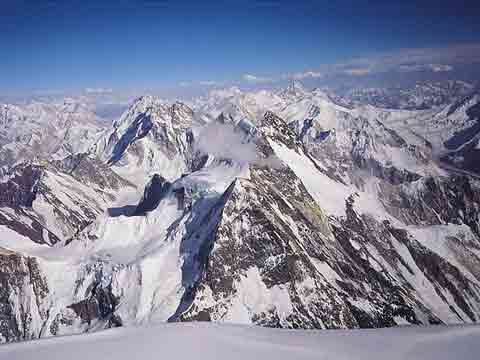
by Colin Monteath. Published 1997. This book details the climbing adventures of fellow-kiwis Gary Ball and Rob Hall. In addition to the big climbs on Everest, K2, Dhaulagiri, Lhotse, Cho Oyu, and Makalu, the book also profiles their climbs on Mount Cook, Antarctica, Pik Kommunizma, and Ama Dablam. After their first ascent on Everest they climbed the 7 summits in only 7 months. Hall and Ball will be remembered for pioneering commercial guided expeditions, with their Adventure Consultants company leading 39 climbers to the top of Everest from 1990 to 1995.
The section on K2 is 12 pages. Rob and Gary Ball failed in attempts in 1988 and 1991. In 1992, Gary collapsed at 8300m felled by another bout of altitude sickness, and had to be dragged down the mountain. Rob Hall finally reached the summit of K2 on July 9, 1994.
Rob's description of K2: "When God was designing mountains he did a particularly good job on Chogori (K2) as there is no easy approach to the summit. All sides are steep and inhospitable. The rock is soft and the faces support huge snowfields, which can unleash the most spectacular avalanches ... its geographical position acts as a magnet for bad weather."
The photos are excellent.
12. The Big Walls: From the North Face of the Eiger to the South Face of Dhaulagiri
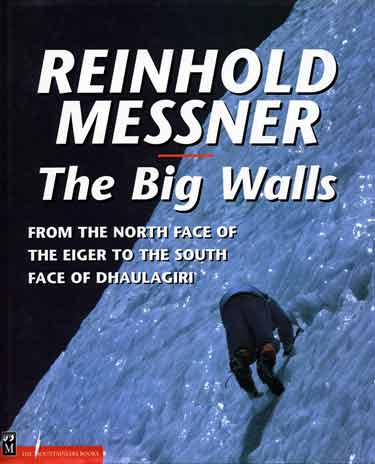
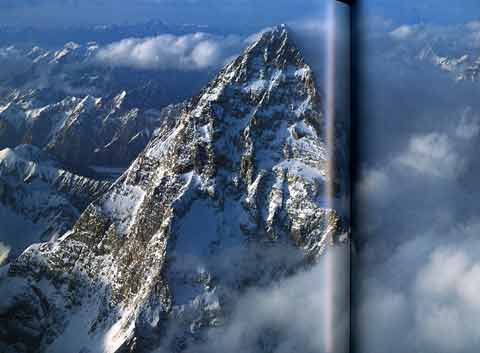
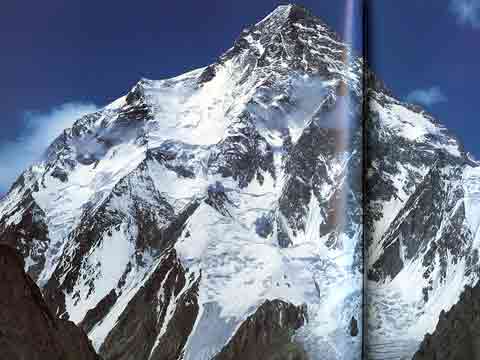
by Reinhold Messner. Revised in 2001. Messner briefly details the big mountain walls in the world in the Himalayas, the Karakorum, the Alps, South America, Alaska and the Caucasus.
It includes two pages on climbing K2 West Face, and two pages on K2 South Face Kukuczka Route.
I like this as a reference book. The photos are very good.